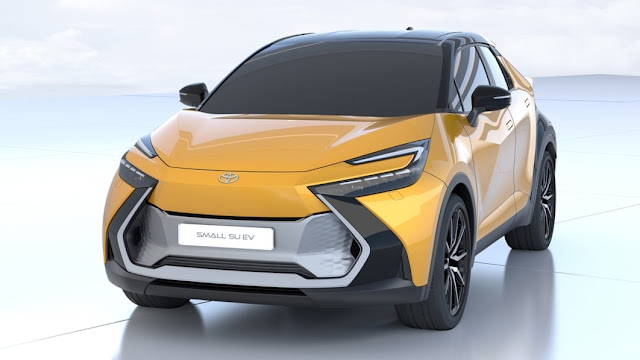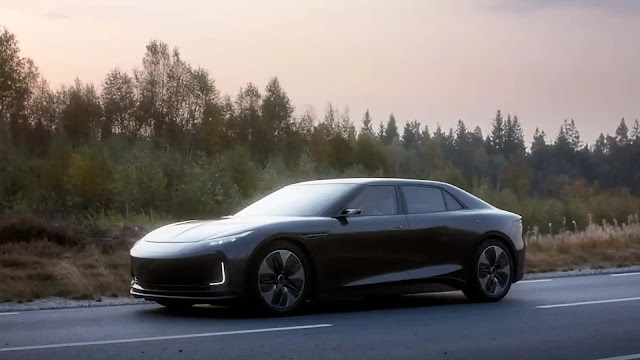Rare Discovery: Unveiling the Extensive Data Tracking Capabilities of Top Car Brands
Did you know that your new car could secretly gather information about you? In recent years, vehicles from leading manufacturers like Toyota, Honda, Ford, and more have become increasingly connected, enabling them to collect and store vast amounts of data. This groundbreaking revelation has shed light on the potential extent of data tracking in cars and its intriguing possibilities. Join me as we delve into this rare find and explore the depths of your car's data collection capabilities.

Modern cars have evolved into veritable data repositories, capable of monitoring your every move. They can track your precise location, record every tap on the accelerator pedal, and even gather biometric information about you. Astonishingly, this data can be sold to various parties within the enigmatic data-broker industry, raising concerns about privacy and security.
In May, Privacy4Cars, a US-based automotive firm, introduced an extraordinary tool called the Vehicle Privacy Report. This cutting-edge solution reveals the staggering amount of data your car can potentially gather. Like the privacy labels for apps created by tech giants Apple and Google, this tool highlights the information vehicle manufacturers can access, giving you valuable insights into the data landscape.
Curious to understand the true scope of data collection, we at WIRED used industry sales data to analyze ten of the most popular cars in the US through the Privacy4Cars tool. Brace yourself—what we uncovered is truly mind-boggling. The results confirmed previous estimates suggesting that cars can generate a staggering 25 gigabytes of data per hour.
Andrea Amico, the visionary founder of Privacy4Cars, emphasized the lack of awareness among car owners regarding the extent of data collection in their vehicles. Due to limited education on this matter, Amico highlights the varying levels of detail and transparency provided by different manufacturers. Drawing a striking analogy, he referred to modern vehicles as "smartphones on wheels" due to their ability to amass colossal volumes of data and wirelessly transmit it to manufacturers.
The Vehicle Privacy Report categorizes the collected data into two broad groups: what the manufacturer collects (including identifiers, biometrics, location, data from synced phones, and user profiles) and whom the manufacturer shares or sells the data with (affiliates, service providers, insurance firms, government entities, and data brokers). For the vast majority of cars and trucks produced in recent years, it's highly likely that most types of data are being collected.
This groundbreaking tool leverages your car's Vehicle Identification Number (VIN) and scrutinizes each manufacturer's publicly available policy documents. To gather data for analysis, we compiled a comprehensive list of VINs for 2022 models from renowned manufacturers such as Toyota, Honda, Ford, Chevrolet, Ram, and Jeep. The results, which are specific to the US due to varying laws in different countries, were then compared against the original documents.
Let's dive into the findings and explore the astonishing capabilities of some of the most popular car brands:
1. Toyota (Tacoma, Camry, RAV4, Highlander)
Toyota, a stalwart in the automotive industry, offers a range of vehicles that have captured the hearts of many. Four of Toyota's renowned models—Tacoma, Camry, RAV4, and Highlander—were included in our selection. The Privacy4Cars tool meticulously analyzed four publicly available Toyota documents, totaling approximately 31,000 words. While older models may collect less data, all the 2022 models we examined were found to collect a significant amount of information.
Toyota, like other manufacturers, extensively collects personal information, including names, addresses, driving license numbers, phone numbers, and email addresses. However, Toyota's data collection prowess doesn't stop there. The tool revealed that Toyota also collects data related to vehicle performance, such as speed, acceleration, braking, and engine diagnostics. They also gather information about the vehicle's location, including GPS coordinates and travel history. Additionally, Toyota's data collection extends to biometric information, including voice recordings and facial recognition data if equipped with advanced driver assistance systems.
2. Honda (Civic, Accord, CR-V, Pilot)
Honda, another renowned automaker, has a strong presence in the market with popular models like the Civic, Accord, CR-V, and Pilot. Privacy4Cars analyzed three publicly available Honda documents, encompassing approximately 19,000 words. The findings unveiled Honda's extensive data collection practices.
Similar to Toyota, Honda collects personal information such as names, addresses, contact details, and driver's license numbers. They also gather vehicle performance data, including speed, acceleration, braking, and engine performance. Furthermore, Honda tracks location data, such as GPS coordinates and travel patterns. The Privacy4Cars tool also revealed that Honda collects data from synced smartphones, including call logs, contacts, and messages.
3. Ford (F-150, Mustang, Explorer, Escape)
Ford, a well-known American automaker, offers a diverse range of vehicles, including the iconic F-150, Mustang, Explorer, and Escape. Privacy4Cars analyzed three publicly available Ford documents, amounting to approximately 15,000 words. The analysis shed light on Ford's data collection practices.
Ford's data collection encompasses personal information such as names, addresses, contact details, and driver's license numbers. They also collect vehicle performance data, including speed, acceleration, braking, and engine diagnostics. Location data, such as GPS coordinates and travel history, is also gathered. Ford's data collection extends to user profiles and preferences, including customized settings for seats, mirrors, and infotainment systems.
These are just a few examples of the findings from our analysis using the Privacy4Cars tool. The comprehensive report delves into the data collection practices of several other popular car brands, providing a fascinating glimpse into the extent of data tracking in modern vehicles.
In conclusion, the emergence of connected cars has unlocked a new realm of possibilities and convenience. However, it's crucial for car owners to be aware of the data their vehicles collect and how it is utilized. Understanding the scope of data collection empowers consumers to make informed decisions about their privacy and security.
I hope that this exploration into the depths of your car's data collection capabilities has provided valuable insights. Stay tuned for our upcoming articles where we further examine the implications of data tracking in the automotive industry.



Comments